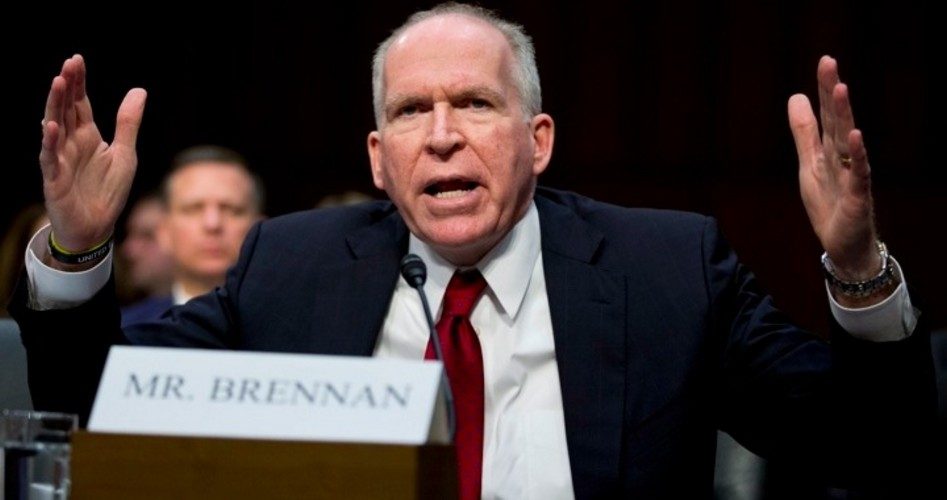
During his confirmation hearing before the Senate Intelligence Committee Thursday, CIA director nominee, John Brennan, responded to questions about the procedures used by U.S. agents in interrogating suspected terrorists, saying, “I don’t know what the facts are or what the truth is.”
Given the rest of his testimony, that’s about the most honest thing spoken by the drone assassination czar.
Over and over again, when pressed about details of the drone war and the use of the unmanned aerial vehicles in the “War on Terror,” Brennan hedged, demurred, and generally evaded every question.
It’s not surprising that committee members took it easy on Brennan (with the exception of a brief rat-a-tat with Republican Senator Saxby Chambliss of Georgia). After all, as was noted in Esquire, these are members of the “national-security priesthood.” They are, in several signal ways, co-conspirators in the policy that has killed thousands of individuals, three of whom were Americans, none of whom was ever charged or allowed to answer any charges.
As one watched the glorified job interview, one got the feeling that the candidate knew he was a shoo-in and that the question and answers were sound and fury signifying nothing.
It was almost theatrical. It was as if the players knew their roles and were merely acting a script for the benefit of an audience who demands these constitutional pantomimes.
Take, for example, the exchange between Brennan and Senator Dianne Feinstein (D-Calif.) regarding the Obama administration’s assassination of American-born, Yemen-based cleric, Anwar al-Awlaki.
Sen. Dianne Feinstein: Could I ask you some questions about him?
John Brennan: You’re the chairman.
Sen. Feinstein: You don’t have to answer. Did he have a connection to Umar Farouk Abdulmutallab, who would attempt to explode a device on one of our planes over Detroit?
John Brennan: Yes, he did.
Sen. Feinstein: Can you tell us what that connection was?
John Brennan: I would prefer not to at this time, Senator. I’m not prepared to.
Sen. Feinstein: OK. Did he have a connection to the Fort Hood attack?
John Brennan:That is a — al-Qaeda in the Arabian Peninsula has a variety of means of communicating and inciting individuals, whether that be websites or emails or other types of things. And so, there are a number of occasions where individuals, including Mr. Awlaki, has been in touch with individuals. And so, Senator, again, I’m not prepared to address the specifics of these, but suffice it to say —
Sen. Feinstein: Well, I’ll just ask you a couple of questions. You don’t — did Faisal Shahzad, who pled guilty to the 2010 Times Square car bombing attempt, tell interrogators in 2010 that he was inspired by al-Awlaki?
John Brennan: I believe that’s correct, yes.
Sen. Feinstein: Last October, Awlaki, did he have a direct role in supervising and directing AQAP’s failed attempt, well, to bring down two United States cargo aircraft by detonating explosives concealed inside two packages, as a matter of fact, inside a computer printer cartridge?
John Brennan: Mm-hmm. Mr. Awlaki —
Senator Feinstein: Dubai?
John Brennan: — was involved in overseeing a number of these activities, yes.
It’s difficult to detect in this exchange the “advice and consent” that the Constitution requires the Senate to bring to the nomination process. Such an abdication of authority is especially deplorable given the seriousness of the topic — the government-sanctioned murder of an American citizen without due process and without any attempt whatsoever to apprehend him and present evidence that his alleged crimes were execution-worthy.
There are those, particularly conservatives, who give the president (and Brennan) a pass when it comes to the killing of a man suspected to be the Svengali of several people who did or allegedly planned to harm innocent Americans. The problem with this thinking, particularly concerning conservatives, is that the Constitution is the law and that document specifically spells out the process by which crimes are evaluated. The Constitution is the supreme law of the land, not the opinion of one president, counterterrorism adviser, or other “high-level intelligence official.”
As Jeremy Scahill said on Democracy Now, “The issue here is not who Anwar Awlaki was or what we think of Anwar Awlaki. The issue here is the Constitution. The issue here is due process.”
Dianne Feinstein doesn’t see it that way, though. Not only is she arbiter of what weapons are and are not covered by the Second Amendment, in a comment after the hearing, she presumed the right to pronounce who is a good American and who is not.
Amy Davidson wrote in The New Yorker that Feinstein said of her takeaway from the Brennan testimony, “And, so, Mr. Awlaki is not an American citizen by where anyone in America would be proud.”
Davidson hit the nail squarely on the head with this commentary on Feinstein’s opinions:
“Proud,” “upstanding,” “so-called American” — is this the basis on which the Senate is judging fundamental questions of American rights and due process? Before the hearing, I wondered what picture of Americans we were supposed to have when we heard about the executive giving itself the power to kill them. Feinstein could hardly have given a less reassuring answer. When and on what basis will any of us get a “so-called” in front of our nationality? That there may have been a good deal of evidence against al-Awlaki is why his case should have gone before a court, not why it shouldn’t have. What happened to the idea that it is precisely when we are the most enraged, and the least popular, that we need to be the most careful?
And so it went. The senators tossed softballs and Brennan never took the bat off his shoulder.
The worst part, though, is not that Brennan didn’t answer the hard questions. The worst part is that the hard questions were never asked.
Where, for example, does the president have the authority to order the death of any person — American or otherwise — without having to present to an impartial judge evidence of the guilt of the target?
Assuming the president believes he has such authority (and thousands of dead “suspected militants” and innocent men, women, and children are mute witnesses that he certainly does believe that), does he heed any boundaries on that power or is it absolute?
Why has Congress — with very few exceptions — consented to stand by impotently while the president and his claque of killers carry out this deadly program?
On the eve of Brennan’s confirmation hearing, someone on the inside leaked a Justice Department memo purporting to lay out the legal justification for the death-by-drone program.
In this “white paper,” the Obama administration claims that with regard to the authority to wage war on these “suspected militants” and their “co-belligerents,” there is no “express geographic limitation on the use of force it authorizes.”
Although the Justice Department had difficulty (reluctance?) in defining “imminent threat,” it is likely that they would have no problem defining “no geographic limit.”
The National Defense Authorization Act (NDAA) placed the United States within the boundaries of the war zone in the “War on Terror.” Now, President Obama, John Brennan, and their co-conspirators have refused to exclude the United States from the drone war, as well.
Given Brennan’s substantial role in the development of the deadly drone war, there is little doubt that as CIA director, he would oversee its expansion worldwide, without regard to any geographic, constitutional, or moral boundaries.
Joe A. Wolverton, II, J.D. is a correspondent for The New American and travels frequently nationwide speaking on topics of nullification, the NDAA, and the surveillance state. He can be reached at [email protected].



